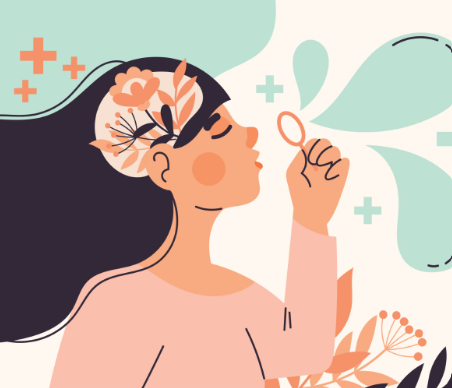As the impacts of life hit home, things are changing fast and it's OK to be feeling a bit all over the place. But we're all in this together. It's important that we prioritise looking after ourselves and each other and stay connected as a community.
Now’s a good time to do what you can to support your own wellbeing and check in with your whānau, neighbours, friends and colleagues to see how they are. We all need a bit of extra support every now and again so if you, or someone you know, is struggling, help is available.
Common signs of mental/emotional distress to look out for in yourself and others:
- Changes to sleep – Sleeping more than usual or have difficulty falling asleep or staying asleep.
- Unexplained physical symptoms – Things like headaches, racing/pounding heartbeat, stomach problems, dizziness or chronic pain can be a physical symptom of mental or emotional distress so please do check in with your GP.
- Difficulty controlling your emotions – It’s normal to feel heightened emotions in stressful times but it’s important to be aware of how these can affect you/others. If unresolved, it can lead to relationship or friendship conflict, issues at work or school, self-medicating, or physical or emotional outbursts.
- Changes in weight/eating patterns – Losing or gaining a significant amount of weight or being preoccupied with food, weight or body image.
- Obsessive/compulsive behaviours – Constant hand-washing for no logical reason or constantly worrying something bad is going to happen.
- Feeling tired all the time – Extreme tiredness and fatigue can occur when your body can’t handle emotional overload and shuts down.
- Memory problems – Forgetfulness can sometimes be a sign of tiredness or distress.
- Not socialising – Feeling like you don’t want to go out or connect with people.
Getting help is key
- If you or someone you know is in immediate danger of harm, call 111 straight away.
- If an immediate response isn’t required but you need crisis mental health emergency treatment, assistance and information, contact Crisis Mental Health Emergency Services (24/7). Ring 0800 467 846 and press 2 for Otago.
- If you’re worried about how you’re feeling emotionally or physically, create a support system. Reach out to people you trust to have a chat and contact your GP or other healthcare providers for advice. Or free call/text 1737 anytime to talk to a trained counsellor.
- For support services in the Southern Lakes region and some self-help tools to help you stay on track, check out the ‘Traffic Light Guide: Looking After Your Mental Wellbeing’.
- Heard the phrase “Put your own oxygen mask on first before helping others”? Do what helps you feel better and make some ‘me time’ every day (even if it’s 10 minutes) for self-care. It could be exercising, getting outside, quality time with loved ones, reading, doing Games Puzzles or crafts, or having a nana nap.
- Take a screen break. Avoid doomscrolling (keep up to date with the news but limit it to certain times of the day) and snooze social media for a while.
- Most of all, don’t be too hard on yourself or others – we’re all just doing the best we can.


